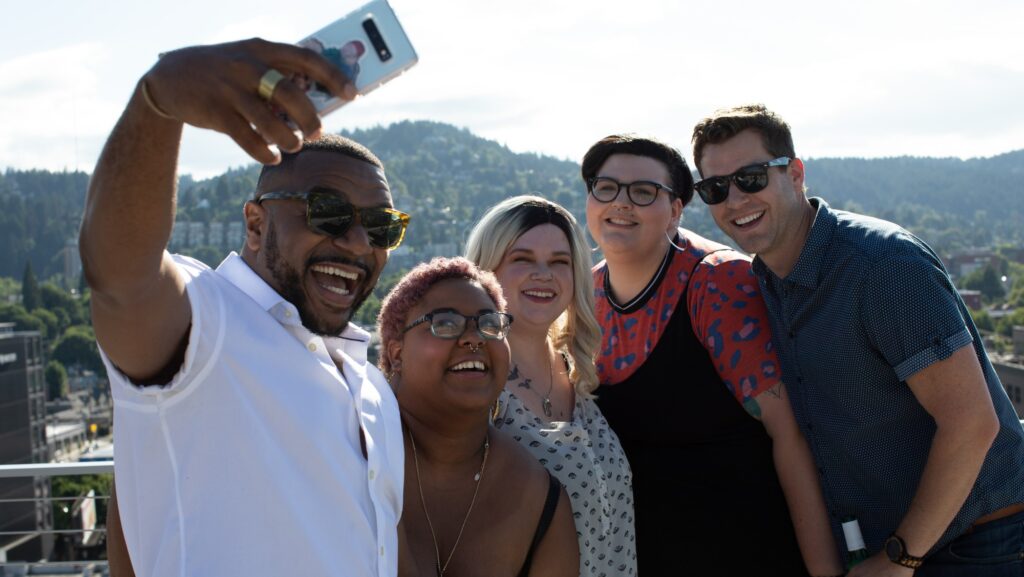Substance use disorder (SUD) can affect anyone. Although different people can have different risk factors, there isn’t a specific type of background or personality required for someone to develop an addiction. SUD doesn’t discriminate, and those providing treatment mustn’t discriminate either.
What Is Inclusivity?
Many people have felt excluded at some point in their lives. Whether someone has a mental or physical disability or belongs to a marginalized group, society can sometimes forget how unique we are and not create spaces that include everyone.
The practice of inclusivity involves providing everyone with the same opportunities and attention regardless of anything that makes them different from others. Inclusivity involves mindfully including people who have been excluded in the past due to race, gender, ability, sexuality, and more.
Inclusivity in Treatment
From the time they are young, people desire to be accepted for who they are. They long to express themselves authentically without rejection. Unfortunately, some people may not have experienced acceptance or feel they can be loved if they show up as their true selves. This feeling can follow them into adulthood, making everyday tasks feel much more challenging than they should be.
When people participate in substance abuse treatment, they should not have to worry about whether or not they will be accepted. Being inclusive is essential in every aspect of life, but it is especially important in treatment for substance abuse.
There can be many reasons someone is struggling with addiction, and one of those reasons could be that they are frequently excluded and want to escape the pain from that rejection and disconnection. Turning to substance use may have felt like their only out, and when they seek treatment, professionals can help them explore the reasons that led to substance use and help them begin to heal.
Marginalized Groups
Some people belong to the LGBTQIA+ community and have a historically marginalized sexual orientation or gender identity. Asking everyone their pronouns and how they would like to be addressed is a simple way to help people feel like they belong. Using more gender-neutral terms for specific issues and topics involved with substance use can also help people feel safe and heard.
Others have faced discrimination or exclusion for physical or mental disabilities. Learning to use sensitive language and avoid promoting harmful stereotypes is a good first step in helping people with disabilities feel welcome. Providing accommodations and accessibility is also highly important for disabled individuals.
The LGBTQIA+ community has a higher rate of substance abuse compared to those who are cisgender and heterosexual. For example, marijuana use affects 37.6% of LGBTQIA+ people compared to 16.2% of the general population. Past year opioid use affects nine percent of LGBTQIA+ adults and 3.8% of the general population.
These higher rates could be partly because people with marginalized identities experience a significantly higher rate of discrimination in all facets of their life. These statistics suggest that many people seeking treatment identify as gay, lesbian, bisexual, transgender, and nonbinary, and it is essential to include these individuals when providing treatment.
Adults affected by disability also have a higher rate of substance abuse. For example, 40.6% of disabled adults used substances in February of 2021, while 24.5% of adults without disabilities used substances. This suggests that many people who seek treatment for SUD are disabled.
Being Mindful of Language
Treatment facilities can implement simple changes in language to ensure that everyone feels included. Avoiding terms related to race, sexuality, gender, and ability that have been deemed no longer acceptable can help treatment professionals avoid making someone feel unwelcome.
Many words have negative stigmas attached, and people in the general population may or may not recognize how harmful those words can be. For example, many of us will throw words around like “crazy” or “stupid” and never think twice about it. Without realizing it, we can perpetuate the idea that people who struggle with a mental health disorder or intellectual disability are worth less or should be perceived as a joke.
Not making assumptions about where people are from or how they ended up in treatment is another way to make the space more inclusive. Everyone has their individual story. Making assumptions based on someone’s looks or identity can prevent a treatment team from truly seeing, hearing, and helping the person.
True Inclusivity
When we take part in treatment, we may have many individual goals, but the one we share is the same: to build a life of recovery. We may look different, talk differently, and have different opinions about the world, and those differences are what make life interesting.
Instead of making people feel excluded for their differences, we should embrace the reality that we can bring different experiences and perspectives to the table through our uniqueness. Our exchanges can spark new ideas, encourage appreciation for what we have, and develop the curiosity to explore things we may not have previously considered. We can learn so much from one another, and being open to these lessons can help us become well-rounded and understanding. Inclusivity can make a world of difference for everyone involved.
Going through treatment for substance abuse is challenging enough on its own. However, if treatment facilities don’t make an effort to be inclusive, treatment can seem antagonistic or even impossible. Creating inclusive and safe spaces for treatment is extremely important. Inclusiveness involves using language that doesn’t carelessly offend people and makes everyone feel seen and heard. Not making assumptions about how someone ended up in treatment but instead learning each person’s individual story can help professionals get to the root of the addiction and help each person heal. Ensuring that treatment is accessible for people with disabilities can make all the difference in someone’s recovery. Being mindful of those different from us is an essential foundation for relationships. We can all learn from one another and grow. To learn more about inclusive treatment, call 449 Recovery today at (949) 435-7449.






